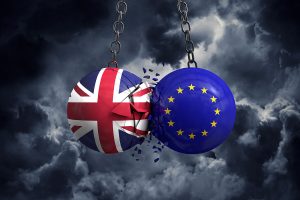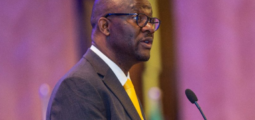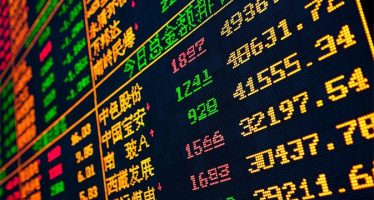Brexit Nears, Hedge Funds Flip Sides, and IMF Urges Spending
 The yield on the benchmark 10-year German bund this week dipped to minus 0,63 percent as investors scrambled for safety and stocks took a beating. Tech stocks stumbled as well after the Financial Times revealed that the European Commission is looking into ways to force a breakup of dominant internet giants such as Google, Facebook, Amazon, and Apple.
The yield on the benchmark 10-year German bund this week dipped to minus 0,63 percent as investors scrambled for safety and stocks took a beating. Tech stocks stumbled as well after the Financial Times revealed that the European Commission is looking into ways to force a breakup of dominant internet giants such as Google, Facebook, Amazon, and Apple.
Equity futures retreated across the board as well after British, German, French, and Dutch authorities announced quasi lockdowns in an attempt to stop the second wave of the Corona pandemic from getting out of control. Meanwhile, the contours of a third wave become visible in the US as the novel virus seesaws from coast to coast.
On Thursday, the FTSE 100 dropped 2.4 percent in early morning trading on reports that London may face stricter lockdown rules. The index timidly recovered some of the lost ground on Friday. The absence of progress in the talks on a post-Brexit trade deal between the UK and the EU also dampened spirits. EU leaders gathered in Brussels on Thursday for two days of talks at a summit that were supposed to deal with the tortuous negotiations. However, that topic was relegated to the footnotes as concerns over the pandemic’s economic and financial fallout took centre stage.
EU chief negotiator Michel Barnier was told to stay within his narrow mandate, and cautioned not to cede ground, as irritation grew over last-ditch British attempts to sow discord in the union. In a series of videocalls with government leaders deemed sympathetic to his plight, Prime Minister Boris Johnson pleaded for ‘small concessions’ to safeguard to the ‘greater good’.
Early in the week, German Chancellor Angela Merkel released a statement saying that any deal should even-handed and reflect the interests of both the UK the EU. In an ominous sign that the British establishment has lost the fine art of correctly interpreting the subtleties of diplomatic exchange, Merkel’s words were instantly celebrated as a decisive victory over the vengeful French and their odious insistence on extracting a punishing deal ‘pour encourager les autres’.
Fatigue
However, the exuberant mood was short-lived as Merkel promptly joined French President Emmanuel Macron in calling Barnier to order after he had suggested a bit more wriggle room to accommodate British demands and secure a last-minute deal. In Brussels, EU leaders dispatched the entire subject as a line item, agreeing that the EU’s position on state aid, fishing rights, conflict resolution, and other thorny issues is crystal clear and needs no further clarification or modification. What also became abundantly clear in Brussels was that Brexit fatigue has set in. EU Council President Charles Michel bluntly stated that London will have to ‘move’ if it desires a deal.
On Friday morning, Prime Minister Johnson addressed the nation in a televised statement to break the news and ask Britons to prepare for a no-deal outcome in case the EU refuses to budge on the outstanding issues. He repeated his desire to obtain a Canadian-style free trade agreement from the EU, a request that has been dismissed by Brussels as a ‘deal too far’ given the volume of trade, the close proximity of the UK, and the country’s apparent refusal to abide by the terms of the Withdrawal Agreement.
Tentative Optimism
If the prescient powers of hedge fund analysts offer any guidance, there is reason for tentative optimism. Fund managers have been gradually shoring up their shorts of pandemic winners such as online retailers, computer manufacturers, and healthcare providers. After three consecutive quarters of strong growth, these over-earners are poised for a return to their ‘old normal’ and are considered unlikely to experience sustained buoyancy. In a recent note to investors, Goldman Sachs warns that a market ‘correction’ is imminent.
Hedge fund managers have turned sour on obvious shorts such as brick-and-mortar retailers, airlines, and entertainment after governments rolled out emergency support packages that limited downsides and took a chunk out of the anticipated profits. They are now scouring markets for more esoteric options, focussing on seriously overpriced stocks with a price-to-earnings ratio running into the hundreds – or even the thousands.
One of the nuggets unearthed by hedge funds has been Germany’s meal kit provider HelloFresh which reported ‘exceptional’ growth and posted a €172 million profit in the first half of the year, after racking up pre-tax losses in 2018 and 2019. A number of bellwether funds such as Lone Pine Capital and Palestra Capital, amongst others, have boosted the volume of bets against the company north of €200 million.
Vaccine manufacturers are another irresistible target. Novavax, up a staggering 2,900 percent so far this year, is racing to develop a combined flu/covid-19 vaccine and has been a darling of hedge fund managers since the start of the pandemic. However, the ranks of dissenters are beginning to swell and flipping NVAX positions from call to put offers a new and exciting thrill.
Big Spenders
In the weeks and months ahead, with multiple crises unfolding, finding stocks to short should not pose much of a challenge. UniCredit, Italy’s largest retail bank, warned that with lockdown restrictions tightening, a post-Brexit deal unlikely, and a post-Corona recovery distant and iffy, Europe is facing a particularly nasty set of circumstances. Meanwhile, the International Monetary Fund (IMF) – formerly a guardian of fiscal frugality – may have suffered an epiphany of sorts and now calls on governments to perish any and all thoughts of austerity. The IMF wants to see deficits and debt ratios balloon and suggests big spending is the only answer to the pandemic.
Advanced economies, the IMF concludes, can and must borrow freely without regard to the overall health of their public finances. The philosophy, whilst risky, is not entirely without merit given the present record low interest rates. Some countries such as Germany, Austria, and The Netherlands – curiously precisely those that managed their finances with an elevated level of prudence in the past – are actually earning good money from negative interest rates: The more debt is taken on, the more profit is raked in.
The novel IMF thinking holds that fiscal largesse will result in economic growth rates – and fiscal revenues – that outpace debt servicing costs by the proverbial country mile, rebalancing national accounts in five years or less. The trouble is that not all advanced economies are created equal. Going into the Corona Recession, both the US and the UK already sustained debt levels roughly equal to their GDP, in addition to crippling current account deficits. The US in particular subsists on the fumes of the no-longer-so-mighty dollar as the world’s reserve currency. The UK, not blessed with a reserve currency, prepares for a double whammy as the pandemic’s resurgence coincides with Brexit doomsday in an almost apocalyptic scenario that calls for a strong chin and stiff upper lip.
In summary, nobody is doing too well these days with, perhaps, the sole exception of President Xi Jinping’s China which seems to have shrugged off the pandemic, and its recession, by boosting domestic demand. Then again, as a fount of regional and global tensions, stresses, and conflicts China does not quite represent a model for others to follow.
You may have an interest in also reading…
Lessons from China
For the first time in nearly half a century China’s economy has stopped growing. The National Bureau of Statistics (NBS)
Davos: Getting It Right Some of the Time
Davos – Pundits and assorted others in-the-know flock to the Swiss mountain village Davos in their hundreds on an annual
Volatility in Chinese Stock Values: Potentially Much More Dangerous than a Greek Tragedy?
The problems facing the global economy in the event of a Greek exit from the euro zone could be dwarfed

















































































